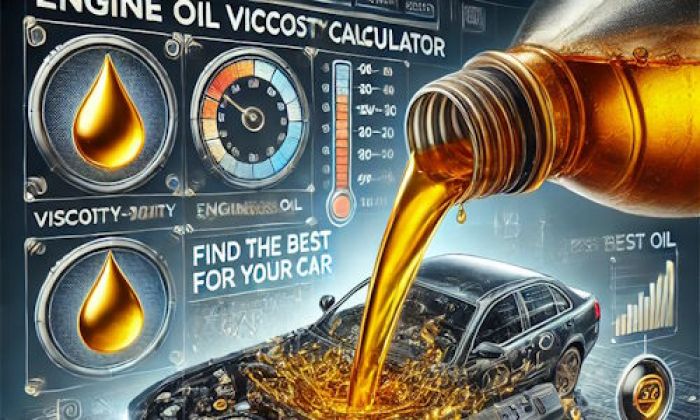Hyundai is a South Korean company that engineers a lot of new technologies often making them trendy in the automotive world. Several modern generations of Hyundai vehicles are not as reliable as you may expect. That's why Hyundai has a reputation for making pretty bad engines.
But I can tell you that not all engines made by Hyundai have short lifespan. They have wonderful powerplants that are ready to compete with the world's best engines. Of course, you still need to understand the important common problems of each engine and think about the ways to make it run longer.
.jpg)
In this article, I will tell you more about the most popular Hyundai engines, their problems, and key specs. The page is dynamic and I will update it once I write about some new Hyundai engines.
Hyundai G6DS engine
This is a pretty new 3.5L V6 engine made in 2020. Now, the engine powers mainly Genesis vehicles but it's likely it will also be used in Hyundai or Kia cars later on.
The engine is very technological, it has a turbocharger that allows it to produce 380 horsepower. The timing is driven by chain and there are phasers in each camshaft. You will need 7 liters of oil for regular oil changes due to engine size and construction type.
This is a high-performance Hyundai engine, so you shouldn't expect it to be very durable. Also, some common issues have to be considered for proper use.
Key facts and my opinion:
- Production years:2020-now
- Average lifespan of G6DS:150,000-180,000 miles
- Fuel supply type:combined injection (GDI+MPI)
- Power range:380 hp
- Fuel efficiency:bad
- Engine block material:aluminum
- Engine reliability score:medium
- The most common problems:potential timing chain issues, overheating problems, and the oil pump is questionable.
Hyundai G4KE engine
This is one of the most widely used 4-cylinder engines in Hyundai and Kia cars. It has been used in the Grandeur, ix35, Sonata, Santa Fe, and also in several Kia models.
This is a pretty simple 4-cylinder engine with port injection. 2.4 liters of displacement is enough to produce good power and torque and still offer great fuel economy. The engine is more or less reliable and doesn't have many common problems.
Key facts and my opinion:
- Production years:2008-2019
- Average lifespan of G4KE:190,000-210,000 miles
- Fuel supply type:port injection
- Power range:170-180 hp
- Fuel efficiency:good
- Engine block material:aluminum
- Engine reliability score:medium
- The most common problems:cylinder warping, weak timing chain, rod bearings premature death, and oil leaks.
Hyundai G4KN engine
This is yet another very popular and common engine under the hood of Hyundai and Kia vehicles. It's known as the Smartstream 2.5 GDI and is mainly used in the US as the base engine for the Tucson, Sonata, and Santa Cruz.
The engine is not really complicated but the fuel injection is combined which may cause some difficulties in maintenance and repair. The camshafts are driven by the chain and both cams have phasers to provide you with better efficiency.
Also, this is a non-turbo engine, but thanks to proper technologies, it can offer great power and torque.
- Key facts and my opinion:
- Production years:2019-now
- Average lifespan of G4KN:180,000-200,000 miles
- Fuel supply type:combined injection (GDI+MPI)
- Power range:194 hp
- Fuel efficiency:above average
- Engine block material:aluminum
- Engine reliability score:medium
- The most common problems:catalytic converter destroying the cylinders, unknown lifespan of the thermostat, lifters require only good oil.
Hyundai G4KJ engine
Interestingly, the G4KJ engine has been made since 2009 and is still found under the hoods of some vehicles even in the US. It's old but pretty good in terms of durability and lifespan.
As with any Hyundai engine, it has some common issues like the problem with direct injection or timing chain issues. But almost all problems are easy to prevent if you know how to maintain this engine.
The 2.4L GDI engine is known for its good power even though there is no turbocharger. It has CVVT phasers on both camshafts.
Key facts and my opinion:
- Production years:2009-2021
- Average lifespan of G4KJ:180,000-230,000 miles
- Fuel supply type:direct injection
- Power range:180-201 hp
- Fuel efficiency:good
- Engine block material:aluminum
- Engine reliability score:medium
- The most common problems:rod bearings are weak, E-CVVT phaser issues, oil consumption due to piston rings issues, carbon buildup on intake valves.
Hyundai G4NB engine
This is a pretty old-fashioned engine known to American car enthusiasts for being the heart of the Elantra between 2010 and 2016. The engine is not perfect and it has problems with lubrication, cylinder warping, and CVVT phasers.
But overall, this is a pretty simple and reliable powerplant that is made to last. I suggest you should pay attention to the thin timing chain and replace it before it kills the engine. Also, high-quality oil is badly needed.
The intake manifold is plastic and it's good because in this engine the flaps won't break and fall into the cylinders like in some other Hyundai engines.
Key facts and my opinion:
- Production years:2010-2016
- Average lifespan of G4NB:180,000-200,000 miles
- Fuel supply type:port injection
- Power range:150 hp
- Fuel efficiency:good
- Engine block material:aluminum
- Engine reliability score:medium
- The most common problems:cylinders warping, catalytic converter is too close to the block, oil consumption, very thin timing chain, various leaks.
Hyundai G4FP engine
This is the Smartstream 1.6 T-GDI engine which means it belongs to the latest generation, has the turbocharger, and also offers a direct injection system. Having just 1.6 liters of displacement, this engine offers good power and torque for almost all tasks.
One interesting thing to point out is the CVVD system. The phasers overall are pretty expensive and complicated and no one yet knows how they will work. Also, the chain is still pretty thin and I can predict it won't last as long as you want it to.
I must admit, the engine is perfect for those who hate paying for fuel because its efficiency is superb.
Key facts and my opinion:
- Production years:2019-now
- Average lifespan of G4FP:150,000-170,000 miles
- Fuel supply type:direct injection
- Power range:180-204 hp
- Fuel efficiency:excellent
- Engine block material:aluminum
- Engine reliability score:medium
- The most common problems:potential CVVD system problems, potential turbocharger oil leaks, carbon buildup on intake valves, no lifters.
Hyundai G4KP engine
This is the Smartstream G 2.5 T-GDI - a very modern and monstrously efficient engine. It has a turbocharger, offers the benefits of the combined injection, and also can produce almost 300 horsepower which is abnormally high for its initial tasks.
This is one of the engines found in the Santa Fe and Santa Cruz, also it powers expensive trims of the Sonata and some Kia vehicles.
We still don't know the actual durability of the powerplant but I can predict that the too-thin chain is going to die very early.
Key facts and my opinion:
- Production years:2020-now
- Average lifespan of G4KP:120,000-140,000 miles
- Fuel supply type:combined injection (GDI+MPI)
- Power range:280-294 hp
- Fuel efficiency:good
- Engine block material:aluminum
- Engine reliability score:low
- The most common problems:timing chain problems, engine is afraid of overheating, oil pump is potentially problematic.
Hyundai G4NR engine
This engine is used as the fuel part of the hybrid system in the Sonata Hybrid and Kia K5 Hybrid. This is the 2-liter engine with direct injection and all the features of the modern Smartstream family of engines.
The powerplant produces 150 horsepower and there is additional power from the electric part of the hybrid unit making it 192 hp combined for HEV and 202 hp for the PHEV.
There is little to no information about the durability of the engine but I should say that there are almost zero complaints. So, only some common Hyundai problems should be considered like valve contamination.
Key facts and my opinion:
- Production years:2019-now
- Average lifespan of G4NR:180,000-200,000 miles
- Fuel supply type:direct injection
- Power range:192-202 hp
- Fuel efficiency:excellent
- Engine block material:aluminum
- Engine reliability score:medium
- The most common problems:hybrid battery pack problems, extremely complicated inspection, carbon buildup on intake valves, electric and software issues
Hyundai G4NJ/G4NL engine
This is the NU family engine or Smartstream 2.0 MPI. The powerplant is known to be one of the simplest versions of Hyundai engines available nowadays. It has port injection, so the annoying valve contamination problem is not present here.
Overall, this engine is simple, but it has new-age phasers, a modern variable pressure oil pump, a very tricky thermostat, and also other modern units that may eventually fail earlier than you expect them to.
The engine mainly powers the Tucson, Elantra, and also the Kia Sportage in some markets.
Key facts and my opinion:
- Production years:2019-now
- Average lifespan of G4NJ/G4NL:180,000-200,000 miles
- Fuel supply type:port injection
- Power range:147-150 hp
- Fuel efficiency:good
- Engine block material:aluminum
- Engine reliability score:medium
- The most common problems:timing chain issues, electronic thermostat problems, rod bearings are potentially problematic, oil pump is questionable.
Hyundai G4LE engine
Belonging to the Kappa family of Hyundai engines, the G4LE is mainly used in hybrid versions of the Ioniq, Kona, and Elantra. Also, some Kia models use this powerplant. The engine is used in both HEV and PHEV types of hybrids.
This is the Atkinson cycle engine with very high fuel efficiency. It doesn't have a turbocharger and only produces 105 horsepower (139 hp in the hybrid system). But it's not as simple as you may think.
The engine has dual CVVT phasers, lifters, a ton of different electronic control modules, etc. I should say, the engine is pretty reliable.
Key facts and my opinion:
- Production years:2016-now
- Average lifespan of G4LE:190,000-210,000 miles
- Fuel supply type:direct injection
- Power range:139 hp
- Fuel efficiency:excellent
- Engine block material:aluminum
- Engine reliability score:medium
- The most common problems:coolant leak recall for first years, carbon buildup on intake valves, timing chain problems.
Hyundai G4KH engine
The engine belongs to the Theta II family and is pretty old. It's a very powerful 2.0 Turbo GDI with a turbocharger and a stock power of up to 280 hp. The manufacturer certainly thought about durability when building this engine but several common Hyundai problems are still here.
Both camshafts have phasers, the cams are driven by the chain which is a weak link in this engine. The balance shafts are combined with the oil pump and this is a serious engineering mistake that very often causes engine death.
The engine was used for many Hyundai and Kia vehicles like the Sonata, Santa Fe, Veloster, etc. But it was discontinued in 2020.
Key facts and my opinion:
- Production years:2010-now
- Average lifespan of G4KH:150,000-170,000 miles
- Fuel supply type:direct injection
- Power range:240-280 hp
- Fuel efficiency:average
- Engine block material:aluminum
- Engine reliability score:medium
- The most common problems:balance shaft problems, lubrication issues, E-CVVT problems in early years, carbon buildup on intake valves, a lot of minor issues.
Hyundai G4FT/G4FU engine
The engine is used for the Tucson hybrid powerplant. Two codes refer to basically the same engine and don't change anything in its construction.
The G4FU version is used for the mild-hybrid powerplant with the 48-volt motor-generator. While the G4FT may be used for HEV and PHEV vehicles. This is a very efficient engine but it lacks durability, so its lifespan is not as good as you may expect.
Also, the hybrid systems in the HEV and PHEV versions are not durable enough. Batteries may require replacement very soon after you buy the vehicle.
Key facts and my opinion:
- Production years:2020-now
- Average lifespan of G4FT/G4FU:130,000-150,000 miles
- Fuel supply type:direct injection
- Power range:180 hp
- Fuel efficiency:excellent
- Engine block material:aluminum
- Engine reliability score:low
- The most common problems:timing chain issues, catalytic converter too close to the engine block, no lifters.
Hyundai G6DN engine
This engine is well-known to American Hyundai fans for powering the Palisade model. But it's not that new and was engineered back in 2018.
This is the GDI model with the direct injection, it doesn't have a turbocharger and can still produce up to 295 horsepower. The engine is 3.8L V6 which makes it one of the last living V6 in the Hyundai's modern lineup.
It's a pretty durable engine with just some common problems. But you will not like the consumption which, in real life, is just awful.
Key facts and my opinion:
- Production years:2018-now
- Average lifespan of G6DN:200,000-220,000 miles
- Fuel supply type:direct injection
- Power range:290-295 hp
- Fuel efficiency:average
- Engine block material:aluminum
- Engine reliability score:medium
- The most common problems:carbon buildup on intake valves, engine is afraid of overheating, potentially weak timing chains, no lifters.
About the authors
The CarAraC research team is composed of seasoned auto mechanics and automotive industry professionals, including individuals with advanced degrees and certifications in their field. Our team members boast prestigious credentials, reflecting their extensive knowledge and skills. These qualifications include: IMI: Institute of the Motor Industry, ASE-Certified Master Automobile Technicians; Coventry University, Graduate of MA in Automotive Journalism; Politecnico di Torino, Italy, MS Automotive Engineering; Ss. Cyril and Methodius University in Skopje, Mechanical University in Skopje; TOC Automotive College; DHA Suffa University, Department of Mechanical Engineering






Add comment